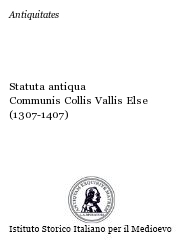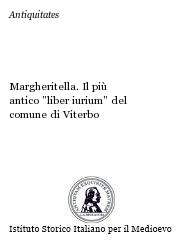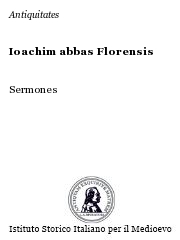Descrizione
Presentazione
Sebbene sia stata solitamente negletta e spesso totalmente ignorata, la Descripcio victorie Beneventi di Andrea Ungaro merita senza alcun dubbio di essere riscoperta.
L’operetta, di cui qui si fornisce una edizione critica assolutamente nuova (la prima completa), accompagnata da traduzione italiana, è la fonte più dettagliata sulla battaglia combattuta tra Manfredi di Svevia e Carlo I d’Angiò a Benevento il 26 febbraio 1266. Composta probabilmente nel 1282, in occasione dello scoppio dei Vespri Siciliani (anche se non possono essere escluse fasi redazioni precedenti), fornisce importantissime informazioni sulla battaglia che segnò un momento cruciale nella storia dell’Italia, dell’Impero, della Chiesa e quindi del mondo, perché mise fine al dominio della dinastia degli Hohenstaufen aprendo la strada all’affermazione della stirpe angioina, destinata a regnare, in Italia, per circa due secoli. Usando, infatti, e trascrivendo interamente alcune epistole inviate, nelle ore immediatamente successive alla conclusione della battaglia, da alcuni importanti protagonisti dello scontro bellico (tra questi lo stesso Carlo I d’Angiò), porta alla nostra conoscenza dettagli sostanziali sugli schieramenti in campo, sulle fasi del combattimento, sul ritrovamento, dopo alcuni giorni, del corpo di Manfredi.
Tuttavia, la Descripcio victorie Beneventi, ben scritta ed elaborata nello stile fiorito e ornato che caratterizza la prosa retorica del secolo che vide il trionfo dei dictatores, non esaurisce i motivi di interesse esclusivamente con la relazione sulla battaglia di Benevento, o con quella della federiciana porta di Capua, di cui pure viene offerta la prima accurata descrizione. Infatti, essa aggiunge una importante tessera al mosaico della cultura europea: quella retorico-letteraria e quella politico-propagandistica di un’epoca che, in seguito alla alterazione degli antichi equilibri, sprigionò quelle nuove energie, che, inarrestabilmente, avrebbero condotto all’Europa degli stati nazionali, i quali, al di fuori e talora contro l’Impero e la Chiesa, non sarebbero più stati disposti a riconoscere la superiorità di autorità egemoniche e assolute, ma, allo stesso tempo, troppo distanti e incorporee.
Usually neglected and often completely ignored, the Andreas Ungarus’ Descripcio victorie Beneventi undoubtedly must be rediscovered.
The chronicle, here presented in a fully new critical edition (the first complete), accompanied by Italian translation, is the most detailed source about the battle of Benevento (February 26 1266) between Manfred of Sicily and Charles of Anjou. Composed probably in 1282, at the beginning of the Sicilian Vespers (but we cannot exclude previous redactions), provides important information on the that battle, which marked a crucial moment in the history of Italy, of the Empire, of the Church and therefore of the world, because it represented the end of the rule of the Hohenstaufen dynasty and the the affirmation of the Angevins, destined to reign in Italy for about two centuries. The Descripcio uses and entirely transcribes some letters sent – in the hours immediately following the conclusion of the battle – by some important protagonists of the battle (among these the same Charles I of Anjou); so let us know substantial detail on the factions in the field, on the phases of the fight, on the discovery, after a few days, of the body of Manfred.
However, the Descripcio victorie Beneventi, well-written and drawn in the flowery and ornate prose that characterizes the rhetoric of the century which saw the triumph of the dictatores, does not exhaust his interest exclusively by reporting the battle of Benevento, or by accurately describing (for the first time) the bridge of Capua constructed by Frederick II. In fact, it adds an important piece to the mosaic of European culture: the rhetorical and literary culture, and the political and propagandistic culture of an era, in which the old balances were altered, and that gave off the new energies that led to the Europe of national states.





